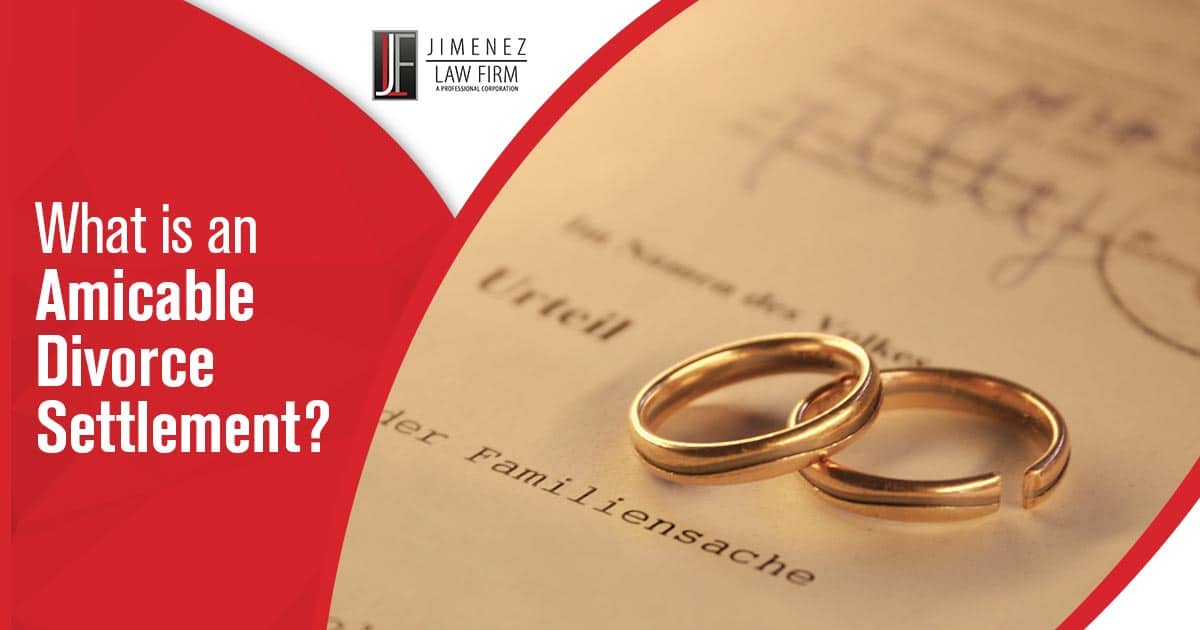What Is an Amicable Divorce in Texas?
In Texas, the official term for an amicable divorce is an uncontested divorce, also known as a no-fault divorce. For a divorce to be uncontested, both spouses must agree on the reason for the divorce and all the terms of their divorce.
If both spouses cannot agree on every single issue, the divorce would then be a contested divorce and handled in court instead of through an independent divorce agreement between the spouses.
If there is a disagreement on even a single matter, the divorce shifts from being uncontested to contested. In this scenario, the divorce proceedings would occur in court rather than be resolved through a private agreement between the spouses.
Qualifying for an Amicable Divorce
In Texas, when the initial divorce petition is filed, the petitioning spouse must specify if the divorce is being filed on fault or no-fault grounds. Fault grounds imply the other spouse is to blame for the dissolution of marriage. If the petitioner files the initial divorce petition on the grounds of insupportability, the divorce is considered a no-fault divorce.
A divorce filed on no-fault grounds will only be harmonious if both spouses manage to agree in good faith on all other aspects related to their divorce.
Agreement on the Issues in Your Divorce for an Amicable Divorce Settlement
Before filing for an amicable, uncontested divorce, you and your spouse must work out agreements on every issue in your case, including:
- how you will divide personal property and real estate from the marriage
- how do you allocate outstanding marital debts
- if either spouse will pay spousal support to the other spouse, and if so, how much
- child custody and visitation schedule
- child support, including the responsibility for health insurance and medical and dental expenses for any dependent children from the marriage
Amicable Divorces in Texas Might Still Require Mediation
If you and your spouse struggle to agree on any of these issues or other things you want addressed in your divorce, consider mediation. A mediator is an unbiased third party who can ensure things go smoothly and everything is done fairly.
Mediation can help find solutions that will work for both you and your spouse, and most mediators will prepare a document detailing agreements reached during the mediation process. This document can be used to prepare the divorce settlement agreement, also known as a property settlement agreement or marital settlement agreement, included when filing your divorce.
Keeping an Amicable Divorce Amicable
Keeping a divorce amicable requires spouses to negotiate in good faith and work together to find solutions to any differences in a productive fashion. An amicable divorce without litigation is better for the physical, mental, and emotional well-being of the divorcing couple and any children of the marriage.
Unfortunately, it can sometimes be challenging to keep your divorce amicable. These tips can help ensure your dissolution of marriage remains amicable.
- Choose to divorce without blaming each other for what went wrong.
- Show mutual respect to each other throughout the divorce process.
- Try to keep your emotions in check.
- Keep your focus on your wants, needs, and nonnegotiable items.
- Be honest about all assets, debts, and income.
- If there are children from the marriage, agree to be good co-parents and decide what is best for your children together.
- Work to reach a mutual divorce settlement agreement outside of court and use mediation if needed.
- Set ground rules for communication.
- Make sure you keep your expectations realistic.
- Be flexible and willing to compromise at times.
An Experienced Family Lawyer is Still Needed for an Amicable Divorce Settlement
Even though you have an amicable divorce settlement, you’ll still want an experienced family lawyer to help with your divorce. A divorce attorney is familiar with the law and will ensure nothing is missed that could lead to potential long-term problems. They can also ensure that no mistakes are made regarding paperwork and filing.
A divorce lawyer will ensure the divorce settlement is fair and equitable, and if you have minor children, they will protect your children’s best interests. You might also need a divorce lawyer if you are going through a military divorce or are in a common-law marriage.
Navigating an Amicable Divorce with an Experienced Attorney
Even an amicable, uncontested divorce can be difficult. When you have legal representation from a reputable law firm, you’ll have someone who can negotiate on your behalf during mediation, offer divorce advice, and guide you through each step of the divorce process.


